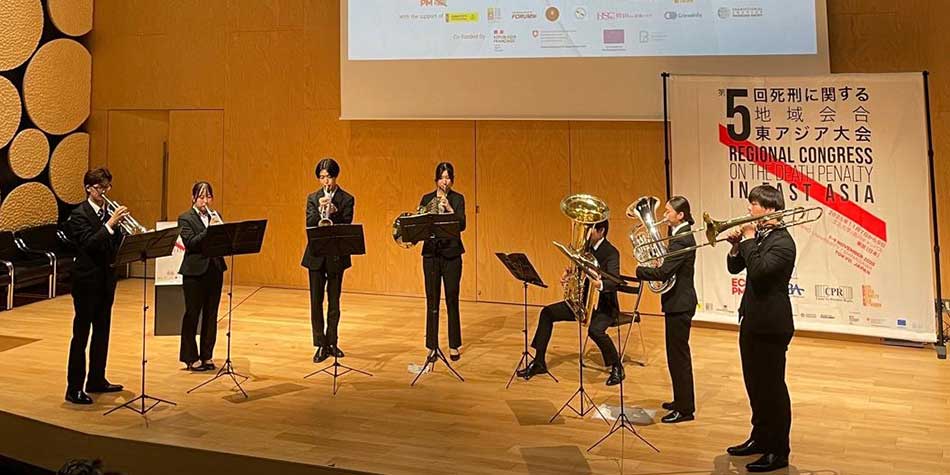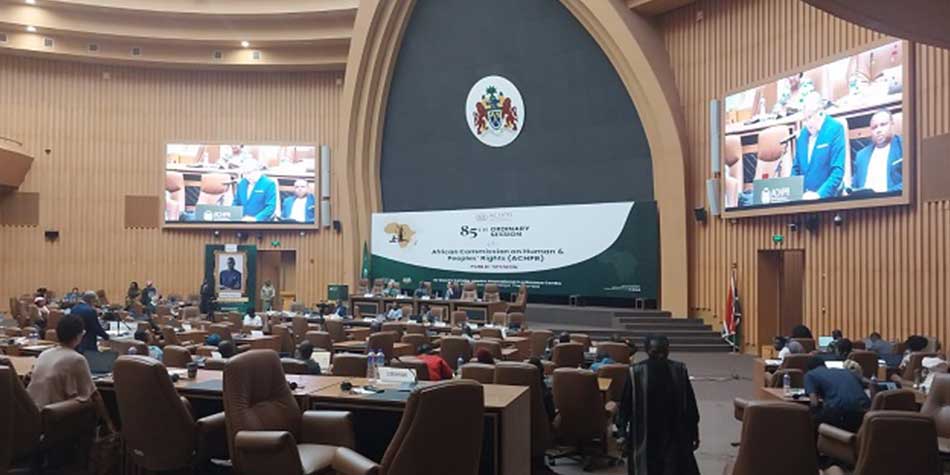
Singapore: Authorities must end executions and stop targeting anti-death penalty activists to curb criticism
Statement
We, the undersigned seven organizations, are gravely concerned by developments in Singapore since the beginning of August 2024, which has seen the authorities carry out two executions in violation of international safeguards on the death penalty, as well as limiting the right to freedom of expression of the Transformative Justice Collective, a non-governmental organization who expressed concern about human rights violations and criticized the processes leading up to the executions.
With fears mounting that more people on death row are now at imminent risk, we call on the Government of Singapore to immediately establish a moratorium on all executions and cease the harassment of anti-death penalty activists, as critical first steps.
On 2 and 7 August, the authorities of Singapore executed two men convicted of drug trafficking in violation of international human rights law and standards that restrict the use of the death penalty to the “most serious crimes”, most recently interpreted as referring to “crimes of extreme gravity involving intentional killing”. Several UN bodies, including the International Narcotics Control Board, have repeatedly clarified that drug related offences do not meet this threshold.
In both cases, the death penalty was imposed as the mandatory sentence, which meant that the judge could not consider the particular circumstances of the offence or the background of the convicted person, also in violation of international law and standards. Another troubling aspect in these cases is that the convictions were reached with reliance on legal presumptions of trafficking under the Misuse of Drugs Act. When these legal presumptions are invoked, the burden of proof is shifted onto the defendant to be rebutted to the higher legal standard of “on a balance of probabilities”. Legal presumptions of guilt violate the right to be presumed innocent –a peremptory norm of customary international law – and other fair trial guarantees under international human rights law that mandate that the burden of proving the charge rests on the prosecution. In addition to undermining the right to a fair trial, presumptions of guilt have also had the effect of lowering the threshold of evidence needed to secure a conviction in capital cases.
As denounced by the Transformative Justice Collective, both men had appeals pending when their executions were set: both were parties to pending civil applications and one of them had an additional pending criminal review application. Safeguard No.8 of the UN Safeguards guaranteeing protection of the rights of those facing the death penalty, adopted by two UN bodies in 1984 without a vote, states that “[c]apital punishment shall not be carried out pending any appeal or other recourse procedure or other proceeding relating to pardon or commutation of the sentence”.
Given the lack of transparency in relation to the use of the death penalty in Singapore, it is unclear what procedural steps the authorities took in the lead up to the execution warrants being issued in these two cases, as well as four others earlier in the year. In the narrow circumstances in which the death penalty may be imposed under international law – which does not include drug trafficking – the criminal justice system should allow a robust testing of the individuals’ right of review up and until the gallows.
The circumstances in which the authorities of Singapore set and carried out these executions violate safeguards under international law and standards to protect against the arbitrary deprivation of life. Subsequent statements by the authorities that the executions followed “full due process under the law” fail to recognize that Singapore’s legislation falls short of international human rights standards, including norms of customary international law to which Singapore is bound by. We call on the authorities to refrain from ignoring these standards when issuing statements on the death penalty and to recognize that respect of human rights is a corollary pillar of the rule of law. Pending full abolition of the death penalty, we call on the Government to immediately establish a moratorium on executions and review national legislation to bring it in line with international human rights law.
A change in course is more urgent than ever, as in recent weeks the Supreme Court has considered and rejected applications filed by several men on death row, potentially exposing them to the risk of execution.
We further condemn the chilling climate of fear and repression that the authorities have created around anti-death penalty activism in Singapore. We absolutely reject the issuing of two Correction Directions and Targeted Correction Direction under the Protection from Online Falsehoods and Manipulation Act (POFMA) against statements made by the Transformative Justice Collective on 1 and 6 August 2024. The orders request “factual corrections”, which have been disputed by the Transformative Justice Collective. Issued by the Minister for Home Affairs and the POFMA Office, POFMA orders targeting those who criticize the handling of death penalty cases in Singapore have the broader effect of curtailing the right to freedom of expression and human rights activism in the country, and preventing fully informed debates on the ongoing use of the death penalty.
When seeking to protect people in Singapore from harm, the authorities must act in accordance with international human rights law, including that related to the protection of the right to freedom of expression. Restrictions to this right must be clearly and narrowly defined in law and conform to the strict tests of necessity and proportionality to a legitimate aim, rather than, in the case of POFMA, becoming a weapon for censorship.
We call on the government of Singapore to cease the use of POFMA orders to silence criticism and ensure that any legal provisions aimed at protecting national security or that unduly restrict the right to freedom of expression are reviewed so that they conform to international human rights law and standards, in order to guarantee the right to freedom of expression for all.
This statement is co-signed by:
Amnesty International
Capital Punishment Justice Project
FIDH – International Federation for Human Rights
MADPET – Malaysians Against Death Penalty and Torture
Parliamentarians for Global Action
Taiwan Alliance Against the Death Penalty
World Coalition Against the Death Penalty
Categories
Singapore






